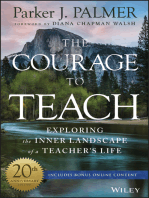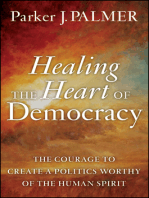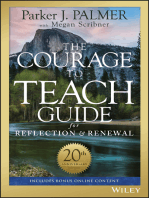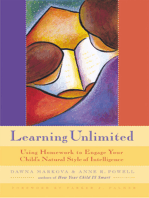The Discoverers: A History of Man's Search to Know His World and Himself
Written by Daniel J. Boorstin
Narrated by Christopher Cazenove
Written by Daniel J. Boorstin
Narrated by Christopher Cazenove
Description











At a beefy 700 pages, it seems a misnomer to characterize Thomas Sowell's Basic Economics as "basic." This book is a beast! Dig into the fifth edition, however, and you will realize the book is large because the subject is vast. It doesn't take a full trip on this educational journey, however, to realize the author promises us "basic," not short or simplistic.
Sowell opens his book with a discussion, "What is economics?" The first line of the block quote is Dr. Sowell's steady drum beat throughout his text:
Economics is the study of the use of things which have alternative uses. It is about incremental tradeoffs, not about needs or solutions. (p. 36)
This is not a text on American economics, though the U.S. features prominently. It is a foray into the multifaceted warp and woof of economic systems and the factors which facilitate or hinder them.
A few of the words and ideas of Sowell that have impacted me:
On statistical data: Seldom do statistical data contain sufficiently detailed information on skills, experience, performance or absenteeism, much less work habits and attitudes to make possible comparison between truly comparable individuals from different groups. (P. 211 f)
On considering the implications: Less is demanded at a higher price than a lower price whether in goods and services or in the personnel behind them. Think rising minimum wage laws.
On wealth: "Physical wealth may be highly visible, but human capital, invisible inside people's heads, is often more crucial to the long-run prosperity of a nation or a people." (p. 546)
On prices: The most valuable economic role of prices is in conveying information about an underlying reality--while at the same time providing incentives to respond to that reality.
On the free market: A big advantage of the free market is that you don't have to convince anybody of anything. You simply compete with them in the market and let that be the test of what works best. (p. 98)
On spotting and avoiding categorical phrases: Oh those irresistible categorical phrases like "clean water."
On the importance of thinking things not words:"Quantitative easing" is simply "printing more money." (p. 426). Also consider the phrase, "income distribution" and others that are broad and sweeping, but usually emotionally charged. We must consider experience, skill, formal education, on the job training, season of life, maturity, and family.
On politics and politicians: Politicians success does not hinge on learning the lessons of historical economics, but on going along with widely believed ideas by the public and media. (c.f. 160, 162) The government only needs to make superficial prima facie case, based on gross numbers to shift the burden of proof to the accused. (p. 164)
A brief overview: Basic Economics is divided into seven parts:
I - Prices and Markets -- Sowell is a proponent of price-driven (not price-controlled) economics. He will address the role of prices and price controls, helping to clear the fog by differentiating prices and costs. Despite promises to the contrary, politicians are not going to "bring down the cost of medical care." Rather, they usually mean "they will bring down the prices paid for medical care." As Sowell notes, on this single issue (but as he argues similarly in other places), "once the distinction between prices and cost are recognized, then it is not very surprising that price ceilings have the negative consequences that they do, because price ceilings mean a refusal to pay the full costs." (p. 82)
II - Industry and Commerce -- The author addresses business (and BIG business), profits and loss, regulation and anti-trust laws, market and non-market economies.
III - Work and Pay -- Of particular interest to me was his explanation of minimum wage laws (he is against them with very compelling reasons). He addresses other special problems in the labor markets, including private industry vs government controlled services.
IV - Time and Risk -- Here Sowell addresses investments; stocks, bonds, and insurance. Time and risk come into focus.
V - The National Economy -- I loved his discussion of national output as well as his explanations of money and the banking system. He provided an insightful look at the Great Depression. He also discussed how national output is measured (GDP and GNP) and the problematic nature of the "starting year" when it comes to statistical reporting.National wealth is not the total of paper money, but the real goods and services that money can by.
VI - The International Economy -- He addresses trade, transfers of wealth and issues of international discrepancies relative to wealth. "When it comes to international trade and international transfers of wealth, the things are relatively straightforward, but the words are often slippery and misleading." Hence, it is necessary to, as Justice Oliver Wendell Holmes admonished, to "think things instead of words." 502
VII - Special Economic Issues -- I especially appreciated his summary of the history of economics. Sowell gave a brief summary of the Mercantilists and then discussed Classical Economics, including Adam Smith, David Ricardo, and Says Law. As to Modern Economics, he addresses Equilibrium Theory, Keynesian Economics, and Post-Keynesian Economics
Quotes:
1. Interdependence: "We couldn't live a day without depending on everybody." Will Rogers (p. 33)
2. Education: "We need education in the obvious more than investigation of the obscure." Justice Oliver Wendell Holmes (p. 64)
3. Poverty: "The real problem of poverty is not a problem of 'distribution' but of production. The poor are poor not because something is being withheld from them, but because, for whatever reason, they are not producing enough." Henry Hazlitt, Economist (p. 261)
4. Demagoguery: "Demagoguery beats data in making public policy." Congressman Dick Armey (p. 454)
5. Legal tender: "There is no record of prolonged war or a great social upheaval which has not been accompanied by a change in the legal tender, but an almost unbroken chronicle in every country which has a history, back to the earliest dawn of economic record, of a progressive deterioration in the real value of the successive legal tenders which have represented money." John Maynard Keynes (p. 370)
6. Dishonesty: "Those who create incentives toward widespread dishonesty by promoting laws which make honest behavior financially impossible are often among the most indignant at the dishonesty--and the least likely to regard themselves as in any way responsible for it." Thomas Sowell (p. 408)
7. Elections: "Speculation is just one aspect of a market economy but it is the essence of elections." Thomas Sowell (p. 455)
8. Facts: "Facts are stubborn things; and whatever may be our wishes, our inclinations, or the dictates of our passions, they cannot alter the state of facts and evidence." John Adams (p. 475)
9. Thinking: "Think things instead of words." Justice Oliver Wendell Holmes (p. 502 et al)
10. Arrogance: "This little poem is an obvious spoof on the famous scholar Benjamin Jowett, master of Balliol College at Oxford: My name if Benjamin Jowett. If it's knowledge, I know it. I am th master of this college, What I don't know isn't knowledge."
11. Goals: "Nothing is easier than to proclaim a wonderful goal." Sowell (p. 629)
12. History: "We shall not grow wiser before we learn that much that we have done was very foolish." F.A. Hayek (p. 626)
Two of the books Sowell referenced:
Keynes, John Maynard. The General Theory of Employment, Interest and Money. 1936
Sowell, Thomas. A Conflict of Visions: Ideological Origins of Political Struggles. 2007
This is gold:
A tourist in New York's Greenwich Village decided to have his portrait sketched by a sidewalk artist. He received a very fine sketch, for which he was charged $100. "That's expensive," he said to the artist, "but I'll pay it, because it's a great sketch. But, really, it took you only five minutes."
"Twenty-five years and five minutes," the artist replied. (p. 269)
More gold:
Wealth gained hastily will dwindle, but whoever gathers little by little will increase it. Proverbs 13:11 CSB
In a world of superheroes, perhaps none is more potent than the Invincible Fallacy. This is the heart-felt, emotionally driven, fact-devoid, un-caped crusader standing vigilant over political and ideological visions that take as axiomatic "only human biases create inequalities." Sowell is going to expose this "hero" as enemy.
Warning: If you do not want to think, DO NOT read this book. Thomas Sowell is not out to soothe emotional anger or promote a social vision. He is not interested in entering a shouting match, nor is he out to take the moral high ground over those who hold opposing views. He does not deny real discrimination occurs. He does, however, want you to look deeper. Open the pages of Discrimination and Disparities only if you are willing to take that look.
Sowell believes the Invincible Fallacy and non sequiturs are propping up a prevailing social view of our times, namely that "statistical disparities in socioeconomic outcomes imply either biased treatment of the less fortunate or genetic deficiencies in the less fortunate." p. vii He notes:
"Such searching, re-examinations of opposing views have become all to rare in politics, in the media and even in academia, where the proud claim was once made that 'We are here to teach you how to think, not what to think.'" p. vii
I love this book. My appreciation runs deep because Sowell's thinking runs deep. His propositions and arguments are backed by fifty pages of sourced reference notes. This is important in a day of sound bites, emotional-driven outrage, and the stampede of rhetoric.
Sowell is going to push us. He will eschew one-factor explanations for the inequities that confront us daily, especially with respect to cries of discrimination that are regularly trumpeted across airwaves, in classrooms, and in protests. Treating hypothesis as "sacred dogma" is dangerous, especially when the improved conditions do not materialize, but actually re-enforce the inequities they seek to alter.
Here is a brief chapter-by-chapter summary . . .
Chapter 1: "Disparities and Prerequisites" -- As economic historian David S. Landes said, "The world has never been a level playing field." (p18) Despite that, many who cry "Discrimination!" act or make discriminatory charges as if it were. Discrimination is viewed as the "one-factor" explanation for the seeming inequity, which often comes with heated emotions and the tenor of "moral high ground." Putting one's hypothesis forward as just that rather than sacred dogma would provide opportunities to examine observable factors that contribute to the disparities: IQ, family background, birth order, parent-child interactions, effort, etc... Sowell notes, "Here, as in other very different contexts, changes in the extent to which prerequisites are met completely can have dramatic effects on outcomes in a relatively short time, as history is measured." (p. 12)
Chapter 2: "Discrimination: Meanings and Costs" -- We appreciate those with discriminating tastes and we abhor those who indiscriminately dismiss others based on group identities and apart from individual merit. The great contribution of chapter two is Sowell's distinction between "Discrimination I" and "Discrimination II" (see below). Sowell, an economist, shows the costs of each type of Discrimination and, in the process, dispels the common myth that "the poor pay more." These matters are consequential. Sowell writes,
The difference between understanding the source of the higher prices and mistakenly blaming those who charged those prices is the difference between doing things to lessen the problem and doing things likely to make the problem worse by driving more much-needed business out of the neighborhood. The difference between Discrimination IB and Discrimination II is not just an academic distinction. (p. 36)
In the second portion of this chapter, Sowell will examine costs associated with discrimination, addressing matters such as disparities between men and women in engineering, Apartheid, minimum wage laws, and housing in Harlem.
Chapter 3: "Sorting and Unsorting People" -- The homogeneous principle impacts apparent social inequities. Sowell notes that people do tend to sort themselves with others who are like themselves (the homogeneous principle). He argues, "when people spontaneously sort themselves, the results are seldom even or random, and are often quite skewed." p. 58 Birds of a feather do flock together. 2016 data "showed that, while the top ten percent of white income earners had incomes nearly eight times that of the bottom ten percent of white income earners, the top ten percent of black income earners had incomes nearly ten times the income of the bottom ten percent of black income earners." p. 61 The disparities were not always or even normally based on Discrimination II, but on the similarities and disparities among groups. Such sorting has significant consequences for highlighting racial disparities and the type of discrimination underlying those disparities. His discussion of Southern black migration to the North and attitudes toward them by both blacks and whites is interesting and informative for understanding the power of sorting as it relates to discrimination . . . or not. See his interesting analysis of Dunbar High School on pages 73ff.
Chapter 4: "The World of Numbers" -- As Mark Twain famously quipped, "There are three kinds of lies: lies, damned lied, and statistics." Sowell will demonstrate how even accurate numbers (statistics), are hijacked and misused when the words that describe what the numbers are measuring are incorrect or misleading. The author's economic pedigree is helpful here as he breaks down matters such as household income (what it is and why it drops or rises); the effect of time and turnover on "the rich" and "the poor"; crime and arrest statistics; capital gains, minimum wage and more. Sterling A Brown said, "Kindness can kill as well as cruelty, and it can never take the place of genuine respect." Sowell helps the reader move toward respectful kindness. Sowell wants to help us move from simple good intentions to empirically-based change. In other words, the "kind" shapers of today's social vision need this.
Chapter 5: "The World of Words" -- The author's opening line provides sufficient summary here: "Numbers may deceive more comprehensively because of their apparent objectivity, but words can deceive more comprehensively because of their emotional appeals that numbers seldom have." (p 115) When words like "war," "racism," or "murder" override careful thought; when they become tools of manipulation to achieve a social vision and are not supported with evidence that substantiates connections of cause and effect, the result is well-intended people actually doing more harm than good. In Chapter 5, the author discusses "Emotions and Causation," the changing meaning of words such as "diversity,"and Ex Ante Words and Ex PostMeanings. Sowell writes, "The crucial point for us today is understanding the continuing ability of many intellectuals to ignore blatant realities which threaten their cherished vision. It has been an on-going triumph of words over demonstrable realities." (p. 136) This chapter is particularly relevant to our current political climate.
Chapter 6: "Social Visions and Human Consequences" -- Is causation always external? No! Here, Sowell demonstrates the attitudinal shift from a sense of duty to "do something for me." He writes, "Productivity is not the only concept that seems to have faded into the background among those with the prevailing social vision. While 'rights' have proliferated, creating a sense of 'entitlement' to what others have produced, duties have shrunk." (p. 184-5) This is an interesting chapter as Sowell attacks what he terms "verbal malpractice." As with other chapters, his counterpoint is thoughtful and level-headed. While the following serves only as an illustration, it highlights other disparities:
Even in a narrowly defined endeavor like professional football, where blacks are greatly 'over-represented,' especially among the star players, blacks have for decades been almost non-existent among football players who kick punts and field goals. Only the fact that the same people who hire running backs and quarterbacks also hire kickers keeps racial discrimination lawsuits from being filed and won, as they could be if these different categories of football players were hired by different people. But there is no reason whatever to arbitrarily exclude the possibility that blacks themselves may prefer doing one thing rather than another--or that any number of other groups are simply better at doing particular things." p. 156
Statistical disparities do not necessitate external causation. Multiple factors influence statistical disparities. For example, in education: the value of education, the value of education by ones peers, hours spent on homework, quality on instruction, and home life. In this case and others, disparities do not necessarily necessitate Discrimination II.
Chapter 7: "Fats, Assumptions and Goals" -- Sowell writes, "Determining particular reasons for particular differences at particular times and places requires the hard word of examination and analysis, rather than heady rhetoric and sweeping presuppositions." (p. 198) In Chapter seven he highlights the danger to an entire society of depicting "outcome differences as evidence or proof of malevolent actions that need to be counter-attacked or avenged." (p. 199) He will ask us to consider the meaning and prospects of equality, show us how other countries, such as Singapore, excel in a global market, not by highlighting its disparity with respect to language, but rather its acknowledgement of and willingness to assume that difference and work to overcome it; a feat noticeably absent in some residents of the U.S.
More on the distinction between Discrimination I and Discrimination II:
Sowell differentiates two kinds of discrimination. "Discrimination I" (the broad meaning of the word) refers to "an ability to discern differences in the qualities of people and things, and choosing accordingly." We don't' think ill of a person with discriminating tastes for cars or wine. In this case, like the word, "judgment," everyone "discriminates" or practices Discrimination I. As Sowell writes, "Ideally, Discrimination I, applied to people, would mean judging each person as an individual as a person, regardless of what group that person is a part of." "Discrimination II" is the more narrow use of the word to refer to "treating people negatively, based on arbitrary aversions or animosities to individuals of a particular race or sex." This is the kind that leads to anti-discrimination laws.
Sowell helps us see that discrimination is a nuanced term. Hence, he will sub-divide Discrimination I into Discrimination IA (judging each individual as an individual regardless) and Discrimination IB (judging by the empirical evidence on the group they are a part of). His discrimination ranking seems cumbersome, but as he notes the difference matters:
People who would never walk through a particular neighborhood at night, or perhaps even in broad daylight [Discrimination IB], may nevertheless be indignant at banks that engage in "redlining"--that is, putting a whole neighborhood off-limits as a place to invest their depositors' money. p. 31
As with all his work, Sowell clarifies the theoretical with practical examples, demonstrating how Discrimination IBdrives up prices in inner-city neighborhoods, causing some shop owners to be viewed as "greedy" when in reality they are not; and, in fact, may be barely hanging on. It is important to consider the differences between Discrimination IB and the more overt and arbitrary Discrimination II.
Good words to remember:
1. Equality: "In no society have all regions and all parts of the population developed equally." Fernand Braudel, French Historian (1902-1985), p. 22.
2. "We fight for and against not men and things as they are, but for and against the caricatures we make of them." J.A. Schumpeter, page 137.
3. "Taxation may be so high as to defeat its object." John Maynard Keynes, p. 138.
4. "Think things instead of words." Justice Oliver Wendell Holmes, p. 152.
5. "You are entitled to your own opinion, but you're not entitled to your own facts." Daniel Patrick Moynihan
6. "A systemic analysis of markets cannot proceed as if there were no other factors involved besides what individual decision-makers happen to prefer." Thomas Sowell, p. 42.
7. "Intentions, whether good or bad, do not predestine outcomes." Thomas Sowell, p. 86.
8. "There are three kinds of lies: lies, damned lies, and statistics." Mark Twain
9. "Kindness can kill as well as cruelty, and it can never take the place of genuine respect." Sterling A. Brown, p. 96.
10. "There is no necessary correlation between what people say and what they do." Thomas Sowell, p. 102.
11. "We fight not for and against not men and things as they are, but for and against the caricatures we make of them." J.A. Schumpeter, p. 137.
12. "If students do not acquire systematic methods and standards for testing conflicting beliefs, this can be a major deficiency in their education, for nothing is more certain than that they will encounter conflicting beliefs on many subjects in the years after they have left the politically correct monoculture on many academic campuses." Thomas Sowell, p. 144.
13. The implications of a pervasive social vision can affect economic, educational and other social outcomes--including the shared norms that hold a society together." Thomas Sowell p 165.
14. "There has never been a shortage of people eager to draw up blueprints for running other people's lives." Thomas Sowell, p. 186.
15. When asked what would happen if all white people were to lose their racial prejudices overnight, W.E.B. Du Bois said with respect to the economic impact on most blacks, "some few would be promoted, some few would get new places" as a result of an end of racial discrimination, nevertheless, "the mass would remain as they are" until the younger generation began to "try harder" and the race "lost the omnipresent excuse for failure: prejudice." p. 198.
Sowell's recommendations to other books I'll be reading:
1. Adam Smith, The Wealth of Nations
2. Clearance Thomas, My Grandfather's Son
3. Walter Williams, Race and Economics
4. Thernstrom, America in Black and White
5. Pinker, The Better Angels Of Our Nature